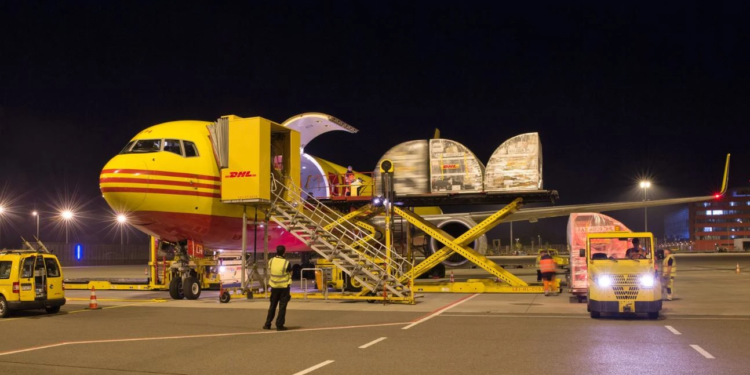DHL Express has introduced a new service called GoGreen Plus. Customers can use Sustainable Aviation Fuel (SAF) to reduce the amount of carbon dioxide (CO2) emitted by their shipments using the service.
This service is being provided for the first time by global express carriers. It will first be launched in the United Kingdom, followed by Italy, Denmark, Sweden, Canada, Australia, South Africa, and the United Arab Emirates.
Customers in these countries will be able to select the GoGreen Plus option when selecting their shipping service through MyDHL+, the company’s online shipping and tracking platform, beginning this month.
GoGreen Plus will be available to all DHL Express customers worldwide in the coming months. Customers will be able to tailor their CO2e reduction goals as well as the amount of SAF they wish to use.
The new GoGreen Plus service results from DHL’s recent partnerships with bp and Neste to supply SAF to DHL Express hubs worldwide. This revolutionary fuel’s renewable component is derived from waste oils. Compared to the traditional jet fuel it replaces, using SAF derived from wastes and residues can reduce greenhouse gas emissions by up to 80% over its lifetime.
Customers can reduce their Scope 3 emissions, which are indirect greenhouse gas emissions that occur in a company’s value chain, including downstream transportation and distribution, by using GoGreen Plus. GoGreen Plus (insetting) reduces emissions within the logistics sector, making it suitable for DHL customers who want to report voluntary emissions in accordance with the Science Based Target Initiative (SBTi) philosophy.
The GoGreen Plus service is part of the Deutsche Post DHL Group’s commitment to reach net-zero emissions by 2050. It backs the interim goal of 30% SAF for all air travel by 2030. According to the Sustainability Roadmap, the Deutsche Post DHL Group aims to provide a sustainable alternative for all products and services across all business units.
John Pearson, CEO DHL Express, says: “We know our customers are committed to reducing their environmental impact so we must be giving them the means to do so. I’m happy that our investment in SAF can now be fully used by customers to help them cut their shipments’ pollution. SAF is currently the primary route to reducing carbon emissions in aviation, so this is the most effective way to help our customers make their own supply chains more sustainable.”






